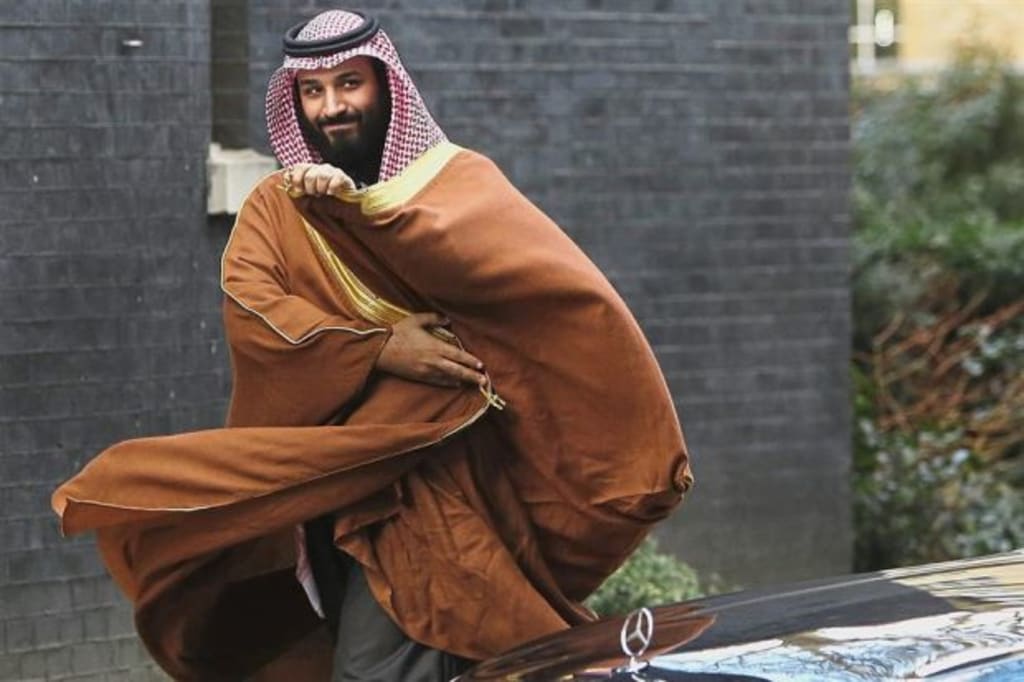Saudi Arabia Can’t Handle More Kisses from Prince Charming
The Middle East's Latest Political Crisis

For decades, Saudi Arabia has been globally acknowledged for its political weight and strong influence over the Middle East—due to its rich oil resources and for hosting the two holiest sites of the Islamic faith.
This Kingdom was known for its slow, bureaucratic, yet firm reaction to any social or political change. This makes sense as the five kings who ruled Saudi Arabia after the founding King Abdulaziz ibn Saud were brothers and are the second generation rulers of the Kingdom.
Their cautious policy approach changed when 33-year-old Prince Mohammed Bin Salman (known as MBS) appeared on the scene three years ago. As Crown Prince, he served as Deputy Prime Minister, Minister of Defense, and Chief of Court. Though his father is still officially the king, the ambitious prince is the de facto ruler of the kingdom because he has all the power in his hands.
Within three years, Saudi Arabia witnessed more changes than in the last three decades combined. Socially, the residents of the Kingdom enjoyed more freedom. Citizens could now go to theatres, host entertainment, and athletic events, and women were allowed to drive.
Such social changes were needed to restrain and restrict the powers of the Committee for the Promotion of Virtue and the Prevention of Vice, a Saudi government religious authority responsible for implementing the Islamic Sharia.
Yet things on the political side have been getting darker. The Kingdom still has no parliament and its citizens do not have the right to vote. Opposition journalists and even family members of the royal family who might have a slight disagreement with the Crown Prince’s agenda have been arrested and kidnapped, disappearing from the public eye.
The Prince holds all the keys of political strength in his father’s Kingdom where he can impose and implement whatever laws and rules he fancies within Saudi Arabia’s borders. With this mindset, the Prince wrongly believes that he can do the same beyond his Kingdom’s borders.
Despite the strong relations that the Prince has with President Trump, the Prince’s recent foreign policies have been remarkable and inconsistent with the political history of the Kingdom.
For the past three years, Prince MBS has led war in Yemen against an Arab coalition. The result has been a devastating famine that threatens the lives of 17 million individuals, according to the United Nations.
The Kingdom under the rule of MBS imposed an embargo over Qatar since 2017. It has also arrested the Prime Minister of Lebanon and forced him to resign. Shockingly, it has recently cut relations with Canada over a human rights tweet.
However, the tides had turned when Washington Post journalist and Saudi critic, Jamal Khashoggi, was murdered on October 2 at the Saudi consulate in Istanbul.
Since the murder, the whole world has been trying to figure out why and how this heinous act happened, demanding an explanation from Saudi Arabia.
The Kingdom stated in the beginning that Mr. Khashoggi left the consulate later that day and they denied any involvement in the murder. By the tenth day, however, the Kingdom provided a story that Mr. Khashoggi was killed in a fist fight inside the consulate.
The inconsistent story showed the weak stance of the Crown Prince, who has been accused of giving orders to kill off Mr. Khashoggi. Even President Trump, the most reliable ally to the Crown Prince has said, “This is the worst coverup in history.”
The death of Mr. Khashoggi will not go without a price and voices from the free world are demanding justice.
The King is now leading the Minister's Cabinet for the first time in recent years. This might be a beginning of changing Saudi Arabia’s current foreign policy. Perhaps this is the beginning to ending the siege on Qatar, ending the war in Yemen, and allowing for democratic changes in the Kingdom. Who knows? It might lead to Mohammed Bin Salman’s reduced powers or resignation as Crown Prince.
In the end, history is full of examples where the unfortunate death of one brave man who believes in his principles can resurrect the same principles in his nation.
About the Creator
Nasser Najjar
Nasser was formerly a freelace producer for several papers such as NYT, USAToday, GN, spokesperson, and head of communications for the Red Cross. He was also a researcher for Human Rights Watch in different parts of the Middle East.






Comments
There are no comments for this story
Be the first to respond and start the conversation.